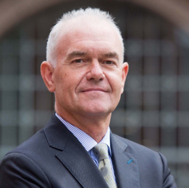Trainees, Examinations and Research
Delivery of care, training and education has been very challenging, and continues to be so, during the ongoing COVID-19 pandemic. The impact on trainees has been significant with reduced clinical experience for many. A strategic priority must be the maintenance of training experience. This needs to include the creative development of virtual teaching and surgical experience.
New guidance has been published about supporting clinical academic trainees in the event of a second wave of Covid 19 (CATF Working group COVID-19 Second Wave Principles Final document). The key message from the document is that any future redeployment of Academic Clinical Fellows (ACFs) and Clinical Lecturers (CLs) will be on a voluntary basis. Many ACFs and CLs were redeployed earlier in 2020 with a commitment from NIHR to fund training extensions for those that were. Hopefully the new guidance will minimise any further disruption to clinical academic training.
A number of BAOS Members applied for the Tri-Collegiate Membership in Oral Surgery examination in November 2020, had their applications initially accepted and received confirmation of places, only to then have places retracted. COVID-19 has clearly interrupted normal examination provision and has meant there are a number of individuals who had originally intended to sit the exam in June 2020 and had been rescheduled for November 2020. Whilst this prioritisation was understandable Council wrote to the Examination Board asking that they accommodate all those individuals who had their applications accepted and confirmed. Whilst we received an apology for disappointment caused, the finite capacity and resources meant that no additional candidates could be accepted for November. The Colleges recruited additional examiners in 2019, however, all new examiners are required to undergo training and examination observation before appointment to the faculty of examiners.
There have also been implications for preclinical and clinical research. Many research laboratories have been closed and only recently re-opened with distancing and longer hours to permit safety. Many research projects have inevitably been delayed.
Patient Care
The consequences for patients have been profound. The cessation of routine care has inevitably reduced the referrals for specialist oral surgery care, especially for elective surgery. There is still reduced operating theatre capacity. Waiting times are growing. There are consequences for the wellbeing of adult and child patients who are living with ongoing pain and infection. The household isolation requirements of the pandemic and the financial fallout has resulted in an increase in domestic violence and abuse and facial and dental injury.
Access to PPE is now not such an issue as earlier in the pandemic. Our survey of BAOS members clearly showed that the initial shortage of PPE impacted on the delivery of care. BAOS has continued to contribute to the national response to the COVID-19 pandemic with written submissions and discussion with NHS England and PHE.
Together with other stakeholders we joined the BDA in writing to the Secretary of State, Rt Hon Matt Hancock MP, expressing our concerns about the ‘Waiting time for dental treatment under general anaesthetic’. Some patients waiting for over a year. Many require multiple courses of antibiotics. We have asked that he step in and provide resolution of the problem as a matter of urgency.
Nurse Support
The BAOS, along with many other dental organisations, has supported the British Association of Dental Nurses (BADN) in their call for recognition of the contribution of dental nurses to the dental profession. There was been concern for some time about number of nurses leaving the profession every year but the COVID-19 pandemic has highlighted some particular issues for nurses around their poor financial security.
Aerosol Generation Procedures
Gavin, BAOS Trainee Representative, and I have contributed to a Rapid Review Working Group of the Scottish Dental Clinical Effectiveness Programme, ‘Aerosol Generating Procedures in Dental Practice’. This was published on 25 September 2020.
BAOS Annual Conference and BAOS Digital
The 2020 BAOS Annual Scientific Conference at the Assembly Rooms Edinburgh initially scheduled for October 2020 was postponed until 4-5 March 2021. We have now made the decision to postpone our new style two-day conference until 2-4 March 2022 in Edinburgh. Please make a note in your diary
BAOS are soon to launch BAOS Digital #BAOSbytesize. This offering will feature both ‘Conference’ and ‘Regional’ regular events, some exclusive to ‘Members only’ and others free to the world! This is an exciting opportunity for us to deliver high quality presentations and discussion interviews with current thinking on a whole range of interesting and relevant subjects. We will also be providing some of these CPD events jointly with other organisations. Our launch event is with the Royal College of Surgeons of Edinburgh on Thursday 17th November at 7.00pm, ‘Oral Surgery Careers’!
BAOS Shop
BAOS is soon to open an online BAOS Shop with cool merchandise accessible via our website.
‘Getting it Right First Time (GIRFT) and Coding
Following hospital visits last year the ‘Getting it Right First Time’ (GIRFT) report was due for publication just as the COVID-19 pandemic reached the UK. The NHSEI wisely wanted to incorporate specialty responses into the report and BAOS was pleased to propose innovative ways of working learned from the COVID-19 pandemic.
We have proposed oral surgery education for general dental practitioners, more conscious sedation, greater integration with general healthcare, oral surgeons at the forefront of oral cancer identification, serving vulnerable patients and offering leadership. Delivery of this and more will require more trainees, Specialists and Consultants. More detail can be found as a supplement to this Newsletter.
There has been further recent GIRFT discussion and this has been about NHS Oral Surgery coding. As we know the dental specialty of Oral Surgery (OS) and the medical specialty of Oral and Maxillofacial surgery (OMFS) have considerable overlap in their curricula. The Main Speciality Code has been a problem with with many Consultant Oral & Maxillofacial Surgeons being wrongly coded to the speciality of Oral Surgery.
The Information Standard Notice (ISN) DCB0028: Treatment Function and Main Specialty Standard describes how, from 1 April 2021, a new code for Oral and Maxillofacial Surgery Service (145) has been introduced, and descriptions against existing codes 140 and 144 state that the new code should be used in preference to these codes. We believe that at this time this is an unhelpful change for commissioning, for waiting list management and for service improvement and planning. We understand that it is too late to stop the new code; however, we have supported GIRFT in asking the ‘Treatment Function Maintenance Group’ to change the descriptions against the three codes (140, 144 and 145) to indicate that:
- Codes 140 should be used for clinics that contain oral surgery patients only
- Code 144 should not be used
- Code 145 should be used for clinics that contain a mix of patients that is oral surgery, trauma, orthognathic surgery, oral cancer, skin cancer and diseases of the head and neck out with GDC Oral surgery curriculum
Advancing Dentistry
BAOS have been invited to provide by the end of October 2020 any current information regarding our specialties current workforce needs (including any evidence as to specialist to population ratio and future retirements that will affect workforce numbers), our patient population oral health needs (including any treatment complexity breakdown) and any other evidence that we feel is pertinent. This is important and we are working on this.
Kind regards,
Professor Paul Coulthard, BAOS President

Newsletter Supplement
- BAOS Proposals to GIRFT for innovative ways of workinglearned from the COVID-19 pandemic.
- There is a need to reduce patient volumes in secondary care and enable primary care services to develop. This redirection of patient flow requires the following to be facilitated.
- General Dental Practitioners in primary care should be supported in undertaking routine oral surgery care such as dental extractions as expected of the general dental services contract. This is likely to require educational support largely online and clear advise about and supply of appropriate personal protective equipment (PPE).
- The more complex oral surgery should be referred to Oral Surgery Specialists and Consultants working in both the primary care and secondary care setting. Dentists with enhanced skills who may or may not be on the GDC Specialist List are currently undertaking some of this oral surgery work (‘Level 2’) but as training post numbers increase this work should be undertaken by Specialists. (Currently only 60 NTNs) This work volume will be reduced if General Dental Practitioners are incentivised to undertake ‘Level 1’ oral surgery. There will still be a need to a greater number of Oral Surgery Consultants (NHS and academic) to undertake the most complex surgery, offer leadership, provide education and undertaken research. (Currently only 115 Consultants) This will allow Oral and Maxillofacial Surgery colleagues to focus on undertaking oral cancer surgery, craniofacial trauma and other complex Level 3 work.There should be much greater use of conscious sedation techniques for patients undergoing oral surgery in primary are and secondary care to avoid the need for hospital general anaesthesia services. This would also enhance the quality of care for patients with severe dental anxiety or medical and behavioural indications or because of the complexity of the surgery required. Oral Surgeons will continue to require use of general anaesthesia as appropriate especially for Level 3 work. Much of the facial trauma surgery is currently undertaken by Oral Surgeons, many in Staff and Associate Specialist (SAS) posts.
- There is a need for effective Oral Surgery Consultant led Managed Clinical Networks to oversee the functioning of the specialist pathway.
- Electronic referral management systems should be used with Specialist and Consultant clinical triage decision-making to enable appropriate redirection of patient flow and enable consistent and accurate data describing patient flows.
- Oral Surgery Patient reported Experience (PREMs) and Outcome measures (PROMs) should be recorded.
- Oral Surgery services should be integrated with other health care systems. Those in primary care should be part of Primary Care Networks with General Medical Practitioners, Pharmacists and others. The clinical care delivered should be wider and flexible according to local needs and recognising the high level of professional skills to offer. This may include integration with diabetes, or pain services, for example. Education should include that of professional colleagues in addition to patients.
- Oral Surgeons should be at the forefront of oral cancer identification from clinical examination. This should be given high priority as routine dental care and examination has been interrupted.
- Oral Surgeons should be involved in provision of services for nursing and care home, prisons and other areas providing care for vulnerable adult and also children.
- Oral Surgeons should be present in health environments such that they can offer clinical leadership of integrated teams.

